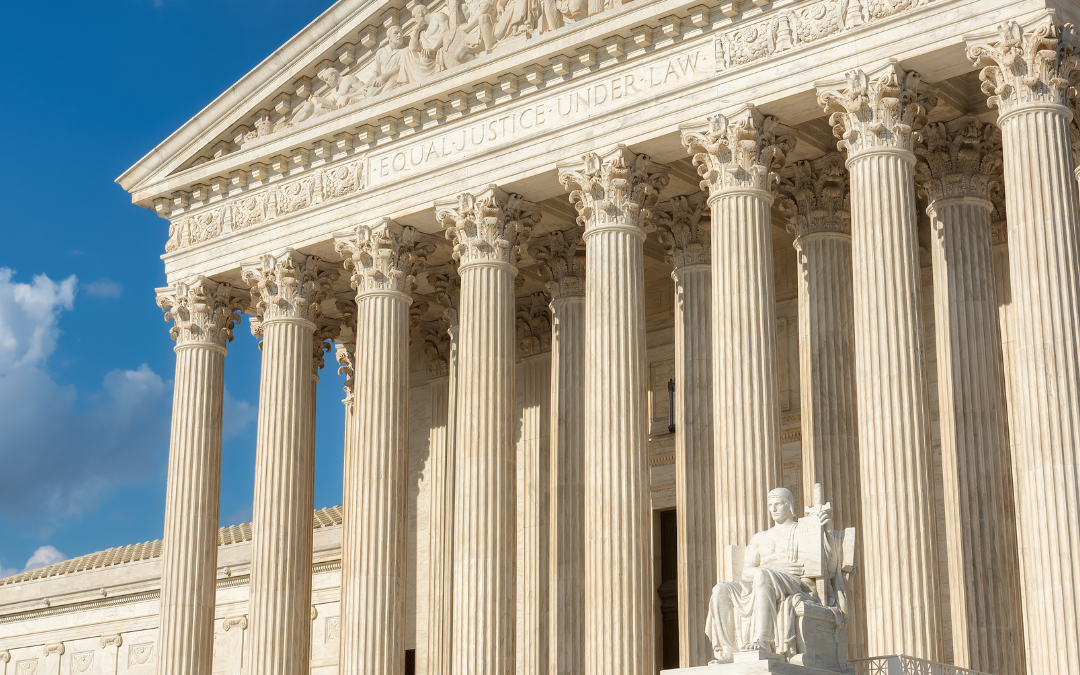ABA’s Support Helps Preserve Investor Rights in Supreme Court Opinion
The Board of the ABA informs you of an important development that impacts the rights of benefits funds as investors in public markets. Several months ago, the U.S. Supreme Court decided to hear an appeal in Macquarie Infrastructure Corp. v. Moab Partners, L.P., a securities class action in which Bernstein Litowitz Berger & Grossmann LLP (a proud supporter of the ABA) serves as Lead Counsel. When the Supreme Court decided to hear this case, the ABA was pleased to join with other associations and institutional investors to support the rights of investors.
Just last week, Justice Sotomayor, on behalf of a unanimous Supreme Court, issued an opinion that, while ruling in Defendants’ favor, actually preserves existing investors’ rights and may actually enable an expansion of investors’ ability to privately enforce violations by public companies of certain disclosure requirements uniformly throughout the country.
The issue presented to the Court was “whether the failure to disclose information required by Item 303 can support a private action under Rule 10b–5(b), even if the failure does not render any ‘statements made’ misleading.” Item 303 requires public companies to disclose “where a trend, demand, commitment, event or uncertainty is both presently known to management and reasonably likely to have material effects on the registrant’s financial conditions or results of operations.” The purpose, according to the SEC, is to enable investors “to assess the financial condition and results of operations” of a company and its “prospects for the future.”
In a short, barely eight-page opinion, the Supreme Court held, consistent with prior caselaw, that “pure omissions are not actionable under Rule 10b-5(b),” but in so doing, the Court made clear that “private parties remain free to bring claims based on Item 303 violations that create misleading half-truths.” Item 303 violations that create misleading half-truths is exactly what was pled in Macquarie, and such violations are pled in virtually all private securities actions alleging Item 303-based Exchange Act claims. Indeed, the ABA’s own amicus brief made this very point: “Contrary to petitioners’ framing, this is not a case about pure omissions. Petitioners were not simply silent about Item 303 or future trends and events—they included in their annual report an extensive discussion that would lead reasonable investors to believe the disclosure was comprehensive and included all that Item 303 requires.”
The Supreme Court was clear that it accepted only the narrow question about omissions, and left Plaintiffs free to argue a broad array of misleading half-truths that could satisfy Item 303-based Exchange Act claims, noting that the Court was not going to opine on “what constitutes ‘statements made,’ when a statement is misleading as a half- truth, or whether Rules 10b–5(a) and 10b–5(c) [colloquially known as scheme liability] support liability for pure omissions.” This language gives plaintiffs the latitude to allege an array of half-truths rendered misleading by Item 303 disclosure violations, including plaintiffs’ argument here that the Sarbanes-Oxley certifications signed by company CEOs and CFOs in all public filings could be the misleading half-truth that serves as the basis for an Item 303-based claim—something Justice Sotomayor specifically commented on during oral argument as an issue the Court did not need to rule on. Importantly, the Court also affirmed that Section 11 of the Securities Act does impose liability for pure omissions.
Whereas Item 303 violations were previously in question, and disfavored if not barred in the Third, Fifth, Ninth, and Eleventh Circuits, the Supreme Court opinion creates a country-wide path for liability based on knowing violations of Item 303, as long as plaintiffs follow the guidance in the opinion to clearly tie the omission to a misleading “half-truth” or scheme to defraud.
If you have any questions about the ABA’s amicus efforts or the impact the Supreme Court’s decision has on your rights as an investor, feel free to contact Bernstein Litowitz partner and ABA associate member Scott Foglietta at scott.foglietta@blbglaw.com.

